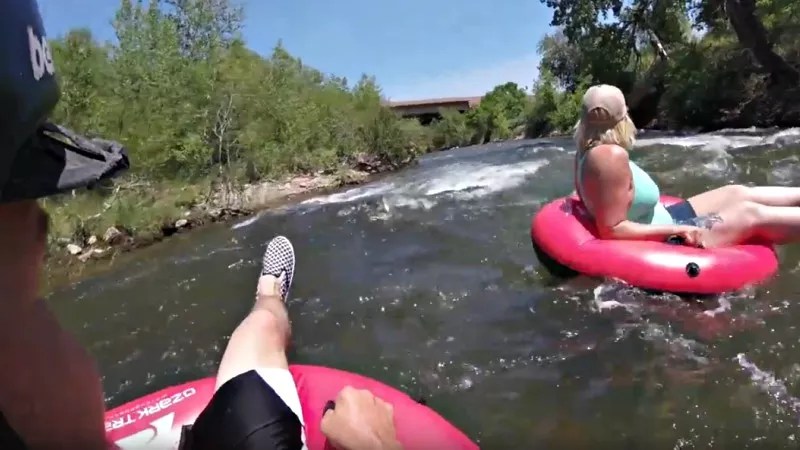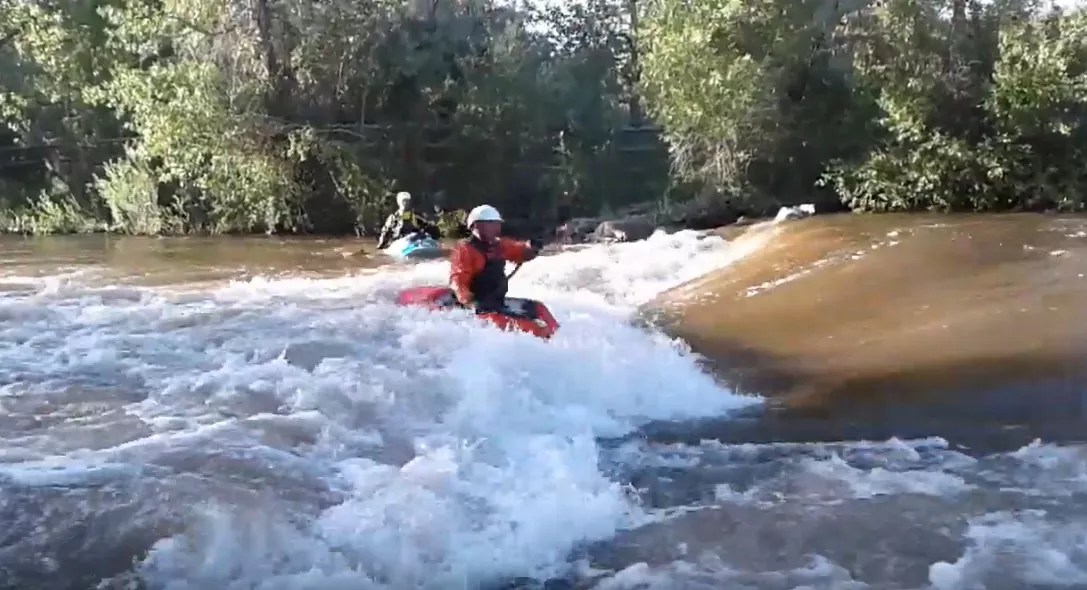

Audio By Carbonatix
Editor’s note: The restrictions on Clear Creek described below were removed on July 12. Learn more in our post “Golden and Boulder Tubing Bans Lifted, But River/Reservoir Death Count Hits 13.” Continue for our previous coverage.
Unfortunately, the title of our June 20 post “How to Survive (and Enjoy) Potentially Dangerous Rafting Season” has become more timely with each passing week. When it was published early that morning, two people had died at Colorado water attractions this season and a woman was missing. But by the end of June 21, three more people had lost their lives, and on June 25, the body of the missing woman, Roberta Sophia Rodriguez, was located and identified. This last tragedy was compounded nine days later, after authorities found Rodriguez’s fiance, Scott Wiebe, dead near La Plata County’s Vallecito reservoir.
Since then, there have been two more fatalities, and a third person’s whereabouts are currently unknown. Boulder’s Michael James, forty, died on June 29 after being swept into the Arkansas River from nearby Buena Vista Whitewater Park, where he had been using a stand-up paddle board. Also on the 29th, Fort Collins resident David L. Smith, 57, was reported missing after falling out of a raft on the Poudre River; a large-scale search the next day was unsuccessful. And just past 11 a.m. yesterday, July 1, a thus-far-unidentified Arizona man was pronounced dead in the wake of a rafting accident on Clear Creek just north of Idaho Springs.
That brings the total number of fatalities on Colorado rivers and lakes in the spring and summer of 2019 to eight (not counting the death of Wiebe, which doesn’t appear to be water-related), with Fort Collins’s Smith still missing.
In the meantime, the Golden Police Department announced that it’s temporarily restricting access to the section of Clear Creek within the city limits after two people tubing in the area were hospitalized on June 28 following a harrowing rescue operation. Additionally, employees of MillerCoors reportedly saved a 27-year-old woman who nearly drowned in Clear Creek near the company’s plant on the 28th.
Water activities currently banned on Clear Creek through Golden include swimming, body surfing, tubing and the use of belly boats and what are described as “single-chambered rafts.” The Boulder County Sheriff’s Office put similar restrictions in place for the Saint Vrain creeks and river back on June 21 in conjunction with the Town of Lyons and the Lyons Fire Protection District.
According to Golden Police Deputy Chief Joe Harvey, the aforementioned rescues weren’t the reason the restrictions were put in place.
“We have to consider a lot of components before we can legally restrict access,” he explains. “We’re a Type IV creek area – the most dangerous is Type VI – because there are a lot of things like blown-out rock and strainers and trees floating down the creek that can really impact and close people in. We also look at water temperature – with the runoff, it’s pretty cold water – and add the cubic feet per second the creek is running and the height it’s at” before Golden Police Chief Bill Kilpatrick and Jefferson County Sheriff Jeff Shrader jointly determine changes must be made.

Kayaking on Clear Creek in Golden is still permitted at this time.
In recent weeks, Colorado Parks and Wildlife estimated the state’s snowpack at 600 percent above the median. But that’s only part of the story, Harvey points out. “Usually, if we have to close the creek, it’s in May and June, because that’s when we have the runoff. But this year, we’re about three weeks behind schedule because we had cooler weather in May and June.”
As for the water level, Harvey says measurements of between 700 and 800 cubic feet per second (CFS) can result in conditions that present difficulties for inexperienced swimmers, with 1,200 CFS typically regarded as the level at which authorities in Golden begin thinking about instituting restrictions.
On July 1, when the restrictions were announced, Harvey says the creek was running at 1,410 CFS, “which is double where we start to worry about inexperienced swimmers. It’s even dangerous for our firefighters to get in there to do swift-water rescue. Our personnel is very skilled at that; we have people who come in from all over the country to train with them, so that tells you how good they are. And if it can be a challenge for them, it would be a challenge for anyone.”
By the way, the historical maximum for Clear Creek on July 1 was 1,560 CFS, in 1983. Click to get the U.S. Geological Survey’s most up-to-date data on Clear Creek.
Kayaks, whitewater canoes, multi-chambered professionally guided rafts, river boards and stand-up paddle boards like the one James was using in Buena Vista Whitewater Park are still allowed on Clear Creek through Golden, at least for now. But Harvey stresses that those who use them should wear Coast Guard-approved padded life jackets and helmets designed for water recreation.
“It’s not mandatory – it’s not the law,” he acknowledges. “People can choose to do it at their own risk. But it’s a good precaution. If you get to an area where there’s a quick undertow and it’s flowing around rocks, it can suck you down really quickly.”
As for how long the access restriction will stay in place, Harvey guesses a couple of weeks, but concedes that it could be longer given the size and scope of the snowpack. As such, it will definitely put a crimp into the plans of many folks over the 4th of July weekend.
“It’s not uncommon to see 1,000 people tubing down the creek on the 4th,” Harvey says. “We’re hoping most of those people will fill in places like Lions Park. But it’s still a bit of a sad impact of the late runoff.”